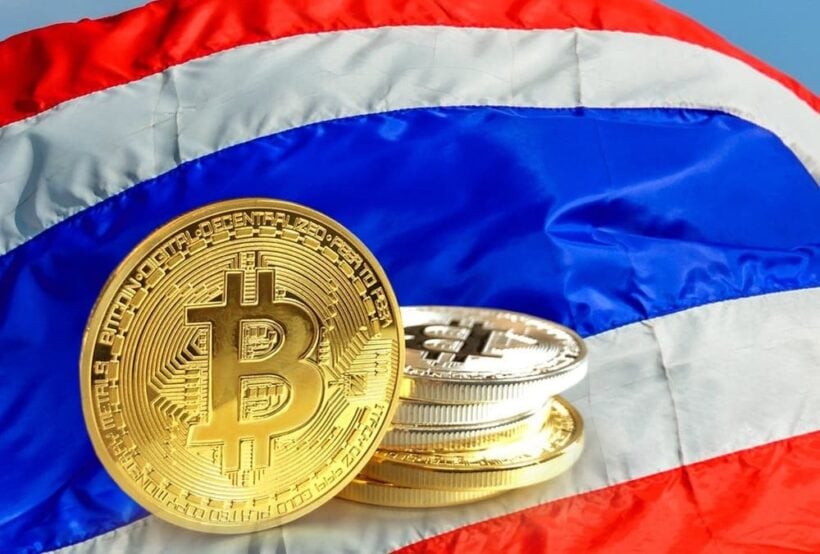Crypto and digital nomads could boost Thailand’s real estate market

As cryptocurrency is the new payment option of the modern era, many real estate developers are now supporting their payments through it. And, as it is still new to the Thai real estate market, experts say its growth potential is huge. As it can serve as a new alternative to real estate trading, it can help real estate developers offer another type of payment option to increase their sales.
Meanwhile, digital nomads can also help boost the real estate market in Thailand as cryptocurrency-based nomads will become a variant to stimulate trading in the country.
Atanop Phanthukom, the CEO of Cissa Group, an investment property developer in southern Thailand, says cryptocurrency investors are on the rise.
“Due to the role of cryptocurrencies and their value as gold nowadays, which can be used to exchange goods and services in real life, cryptocurrency investors are considered a group of people with high purchasing power. Furthermore, cryptocurrency is acknowledged in many countries, while Thailand is in its early stages.”
“Most investors are considered a new generation, which real estate business should not be overlooked, especially foreign investors who get a return from investing and are looking for long-term investments. Real estate is definitely the right answer. If this group of people can be attracted to buy real estate in Thailand, it will generate a huge income.”
Nuttaphong Kunakornwong, the CEO of SC Asset, said that the country’s opening on 1 November would be an opportunity for all businesses, including real estate. He says the company is preparing to study real estate trading through cryptocurrency and it is expected to be ready by the end of the year to facilitate the new generation of customers.
As SC Asset foresees the trends and opportunities of the digital asset market, it expects to become an opportunity for the real estate market, reaching foreign customers and the young generation who invest in cryptocurrency.
“We see the growth of cryptocurrency in Thailand, which is currently worth 3-4 billion baht per day trading. Although it seems like not much compared to foreign countries, it grows consistently. Many investors succeed in investing in crypto, and many want to turn it into a property at the right time.”
As Club Med recently voted Thailand as the best in which to live for digital nomads, allowing such workers to stay may be the key to boosting the economy.
But, a study by WorkMotion, which is an HR platform that helps match businesses with remote workers worldwide, ranked Bangkok 68th out of 80 cities worldwide for remote working. The company says Bangkok suffered in areas such as housing access, political stability, gender and sexuality issues, and the necessary rules and regulations to attract digital nomads.
While Thailand has chosen digital nomads as one of 4 high-quality tourist demographics to woo for the future of tourism, there still isn’t a legal visa for those working remotely for countries abroad.
WorkMotion says that technology is ready for remote work, and with the Covid-19 pandemic, people became accustomed to working remotely, suggesting that the market for offsite workers worldwide will continue to grow in the future. The company also noted that work from home business models were adopted during the pandemic, with many businesses not seeing many negative effects of the changes made.
Thailand has recently approved the digital nomad visa, along with 3 other new types of visas, in an effort to boost the economy. And, for those interested in gaining a digital nomad visa must show proof of earning $40,000 USD per year, along with having health insurance coverage of at least $100,000 USD.
Currently, foreigners are not allowed to work without securing a work permit in the country. Moreover, buying land or property is also not possible with existing laws. But, the new laws would make such obstacles possible for those approved groups, which include wealthy travellers, retirees, and highly-skilled workers. The TAT has put forth specific criteria, that the groups must meet in order to qualify. If these are met, it could secure a 10 year visa for any of the groups.
According to government spokesman Thanakorn Wangboonkongchana, also included is a Thai work permit, with visa holders paying the same tax rate as Thai nationals. They will also be exempt from tax on income earned abroad and entitled to own property and land.
The new property ownership laws seem similar to the U.S.-Thailand Treaty of Amity, which was signed back in 1833. That law gives special privileges to Americans on Thai soil and vice versa.
Further similarities include being exempt from taxes (although the Amity Treaty only mentions property taxes) and the ability to own land as a foreigner. For decades, Americans have enjoyed special privileges in Thailand, but only to the disappointment of other foreigners who have wanted to invest in the country, but are turned off due to the many obstacles presented.
Latest Thailand News
Follow The Thaiger on Google News:


























